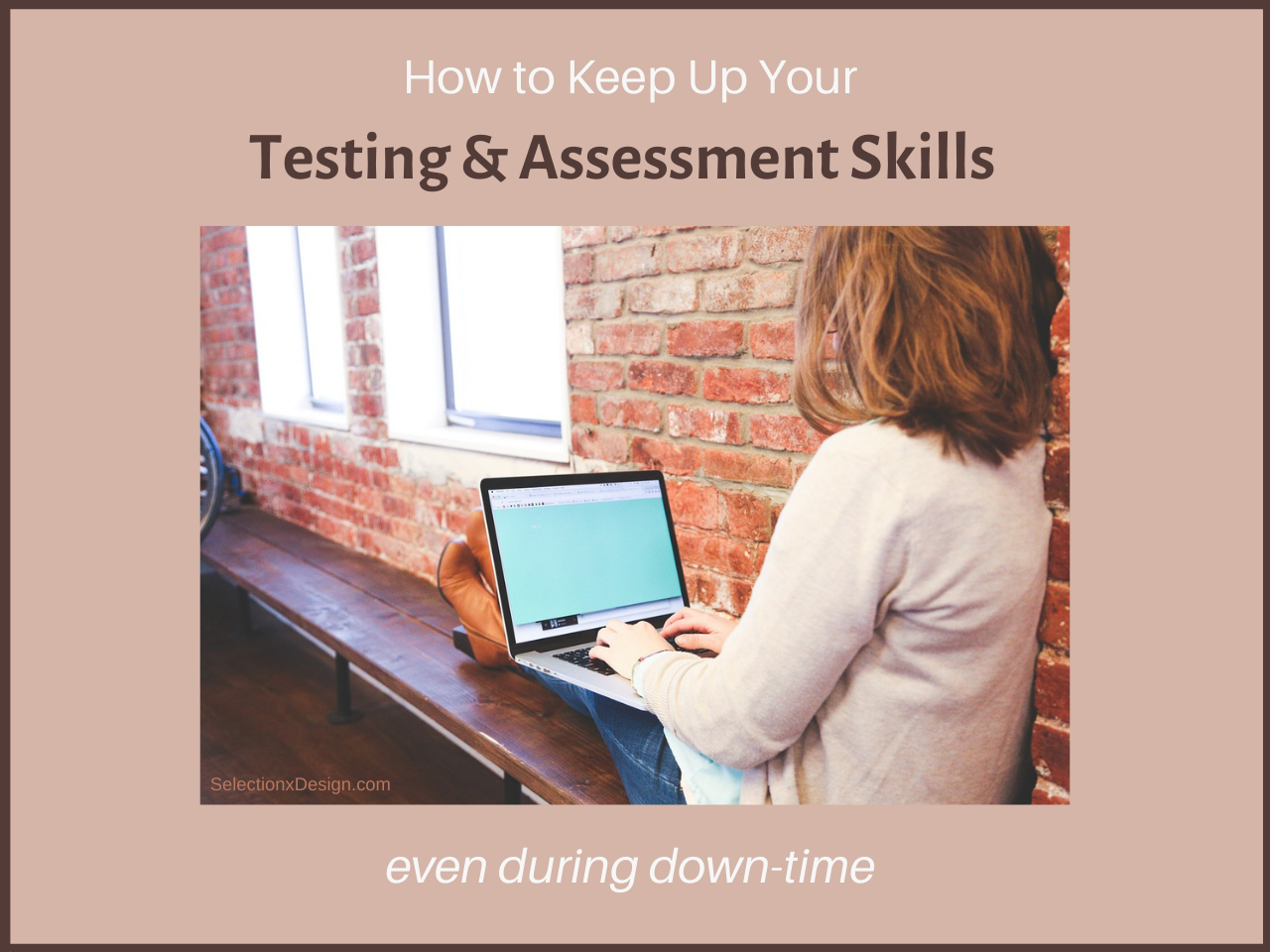How to Maintain and Fine-Tune Your Psychometric Testing & Assessment Skills
The Selection by Design team has the pleasure of training hundreds of persons in psychometric testing each year. Some trainees start working with tests or incorporate their new psychometric testing skills in their current roles right away. Others may not have the opportunity to begin using psychometric measures for a time. This is common for students who complete their BPS Test User training alongside an undergraduate or graduate degree.
The BPS/EFPA qualifications reflect in-depth knowledge and high-level psychometric testing skills. How can you maintain your expertise until you start actively working with assessments?
1. Practice.
Our BPS Test User training courses provide trainees with the chance to develop skills in administering tests, interpreting assessment scores, and discussing results with clients. We include simulated feedback and role playing in many of our training exercises. Further practice with a friend or colleague can help you find your own preferred way of phrasing and communicating test details and results. Additional experience will help ensure your future client interactions are comfortable and professional.
It can also be helpful to practice interpreting different types of test scores and linking results together within written reports. Even if you aren’t formally working with clients yet, you can still purchase and work with assessment you’re qualified to use!
2. Build your professional testing network.
Now is the time to establish links with others working in psychometric testing. Many of our trainees already have a strong presence on social media sites such as LinkedIn. Expand your connections and find persons you can learn from and with!
Special interest groups and experts in psychometrics often work within the areas of psychology or business. Depending on the kinds of tests you will use, you might focus on areas such as occupational, organisational, educational or forensic psychology. You may also have a look at the areas of coaching or guidance counselling if your interests include career or personal development. Those who plan to use tests in the workplace may consider exploring connections focused on human resource management, talent acquisition, team building or leadership.
3. Connect with psychometric test suppliers.
It can be helpful to establish relations with test suppliers or publishers you plan to purchase from early on. Typically, pre-registration and evidence of your qualifications will be required before you’re able to buy tests. It can take a few days for approval to be granted. You don’t want delays when you have an urgent request from a client for testing! Plan ahead and be ready instead.
Be prepared by having a clear understanding of your supplier’s products, payment options, and delivery or set up for testing. Will you need to learn how to use the supplier’s own testing platform to conduct testing? Is there an associated fee? How fast will the test be available once you’ve made your purchase?
Selection by Design supplies a range of psychometric tests, such as Cattell’s 16pf and the smart aptitude reasoning series tests. Rather than requiring our clients to purchase and learn to use a specific platform, SxD will set up your testing campaign, distribute assessments, and return your result reports. Buyers benefit from efficient, hassle-free testing and avoid paying for platform use. It is worth asking a potential supplier how access to their test products will be managed, to ensure your expectations will be met.
4. Explore additional tests.
Many trainees begin their work with psychometric tests by using the assessments that were introduced during Test User training. Your qualifications, though, more generally reflect your skills in working with psychometric instruments. For example, the Test User: Occupational, Ability qualification is widely recognized as sufficient for you to purchase and work with any test of ability, aptitude or career interest. You may find it helpful to explore different examples of tests to help you prepare for future client requests.
The BPS offers independently, professionally compiled Test Reviews through its website. It includes numerous psychometric assessments that are used throughout the UK, Ireland, and globally. Test Reviews are free to members of the RQTU, and available for purchase to the general public. The reviews can be a great help in narrowing down tests you may like to work with.
You’ll find additional suggestions on how identify and compare tests that are available on the market here.
5. Expand your knowledge of psychometrics.
Opportunities for Continued Professional Development (CPD) in working with psychometric testing can be found through professional societies like the BPS, Psychological Society of Ireland (PSI), Chartered Institute of Personnel and Development (CIPD). One of the many benefits of RQTU membership is discounts on CIPD courses.
You may find it useful to explore issues of two journals freely accessible to RQTU members: Assessment and Development Matters and Testing International.
Selection by Design’s website has an extensive and useful blog that covers many topics related to psychometric testing. Test publishers may provide informative resources or white papers on psychometric assessments on their websites. It can be worthwhile examining these as you explore suppliers. Keep in mind the possibility of bias towards promoting the seller’s own products and services.
If you are fortunate enough to have access to academic database and literature sources, your possibilities for researching issues and options in psychometric testing are endless!
Happy testing,
Barbara



